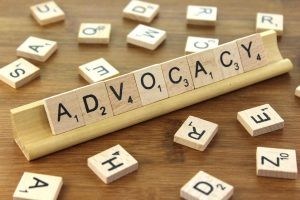How libraries play a role in digital government: an advocacy tool
By administrator | 1 November 2017
As citizens' interactions with all levels of government increasingly move online, people turn to libraries for free, non-judgemental assistance to successfully navigate public services.
Libraries and Digital Government: collaborating to build digital citizenship was released by The National and State Libraries Australasia (NSLA) in September 2017. It is a proposal for dynamic collaboration between government and libraries to enable citizens to access and use increasingly online-only public services, and to fully engage in participatory democracy.
By 2020, it is predicted that 80 per cent of Australian Government service relations will take place online. We are already directed online to access federal government services such as:
- Centrelink
- Medicare
- Australian Taxation Office
- Australian Job Search
online nline online online online
Governments want to provide quality services in the digital environment. Not everyone can fully participate. This is where libraries support people to access and apply the information they need for personal and community development.
Australia has more than 1600 libraries with free public access to technology and the internet. All levels of government depend on libraries to help people effectively navigate public services. People turn to libraries for free, non-judgemental support and when they need to interact with digital government. Libraries:
- address digital disadvantage through one-on-one support and learning programs
- assist with information-seeking, literacy and lifelong learning
- provide access to computers and internet connectivity.

-
CC BY-SA 3.0 Nick Youngson
- NSLA has distilled the challenges of digital citizenship so that libraries can advocate at the local level for the role they play at all levels of government.
The three key areas are to: reduce barriers and access to digital government; a focus on future solutions to solve complex inclusion solutions across communities; and to build connections positioning libraries as the natural intermediaries between citizens and government. Read the full document here.
Comments
Your email address will not be published.
We welcome relevant, respectful comments.